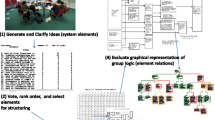Abstract
Instructional development and evaluation are essentially concerned with the giving and taking of advice, and, for this reason, a great deal of what is accomplished depends upon the quality of the client-consultant relationship. Creating and nurturing such a relationship, which is essential to effectiveness, demands a special set of skills. Most developers and evaluators have usually developed these as a result of their long experience. Fortunately, these relationship skills can be more quickly acquired, for effectiveness involves learning the competencies that comes from getting the right things done in terms of client-consultant expectations.
This paper examines the special nature of the client-instructional developer, client-evaluator, relationship within the broader and more general context of a theory of advice. An analysis is made of the differing sets of assumptions and expectations that may underlie the relationship, for which three common models are recognized.
The discussion then continues with a description of seven successive phases through which a relationship can typically pass, a cycle which runs parallel to the cycle of task-oriented activities more usually recognized. Both cycles, relationship-oriented and task-oriented, need to be managed in such a way that the two on-going sets of activity are as compatible as possible. After considering a number of general factors that contribute overall to effective relationships, the paper concludes with the assertion that effectiveness seems to be a product of how the relationship is actually viewed.
Similar content being viewed by others
References
Argyris, C. (1961). “Explorations in consultant-client relationships”. Human Organization, 20: 121–133.
Bryson, L. (1951). “Notes on a theory of advice”. Political Science Quarterly, 66(3):321–339.
Daccord, J. E. (1967). Management Consultants: A Study of the Relationship between Effectiveness and Several Personal Characteristics. Unpublished Masters thesis: Sloan School of Management, M.I.T.
Davies, I. K. (1971). “Style and effectiveness in education and training: a model for organizing teaching and learning”. Instructional Science, 1(1):45–85.
Davies, I. K. (1973). Competency Based Learning: Management, Technology and Design. New York: McGraw-Hill.
Davies, I. K. and Schwen, T. M. (1972). Toward a Definition of Instructional Development. Washington, D.C.: Association for Educational Communications and Technology, Division of Instructional Development Monograph.
Drucker, P. F. (1966). The Effective Executive. New York: Harper & Row.
Frohman, M. (1970). Conceptualizing a Helping Relationship. Ann Arbor: Institute for Social Research, Center for Research on the Utilization of Scientific Knowledge.
Gardner, J. W. (1965). “How to prevent organizational dry rot”. Harper's Magazine, October, p. 20.
Gombrowicz, W. (1973). A Kind of Testament. London: Calder & Boyars.
Kolb, D. A. and Frohman, A. L. (1970). “An organization development approach to consulting”. Sloan Management Review, 1970, 51–65.
Lawrence, P. R. and Lorsch, J. W. (1969). Developing Organizations: Diagnosis and Action. Reading, Mass.: Addison-Wesley.
McGregor, D. (1960). Human Side of Enterprise. New York: McGraw-Hill.
Schein, E. H. (1969). Process Consultation: its Role in Organization Development. Reading, Mass.: Addison-Wesley.
Tilles, S. (1961). “Understanding the consultant's role”. Harvard Business Review, 39: 87–99.
Author information
Authors and Affiliations
Additional information
Ivor K. Davies, April 24th 1974. No part of this paper may be reproduced, stored or transmitted by any means without the written permission of the author.
Rights and permissions
About this article
Cite this article
Davies, I.K. Some aspects of a theory of advice: The management of an instructional developer-client, evaluator-client, relationship. Instr Sci 3, 351–373 (1975). https://doi.org/10.1007/BF00051901
Issue Date:
DOI: https://doi.org/10.1007/BF00051901




